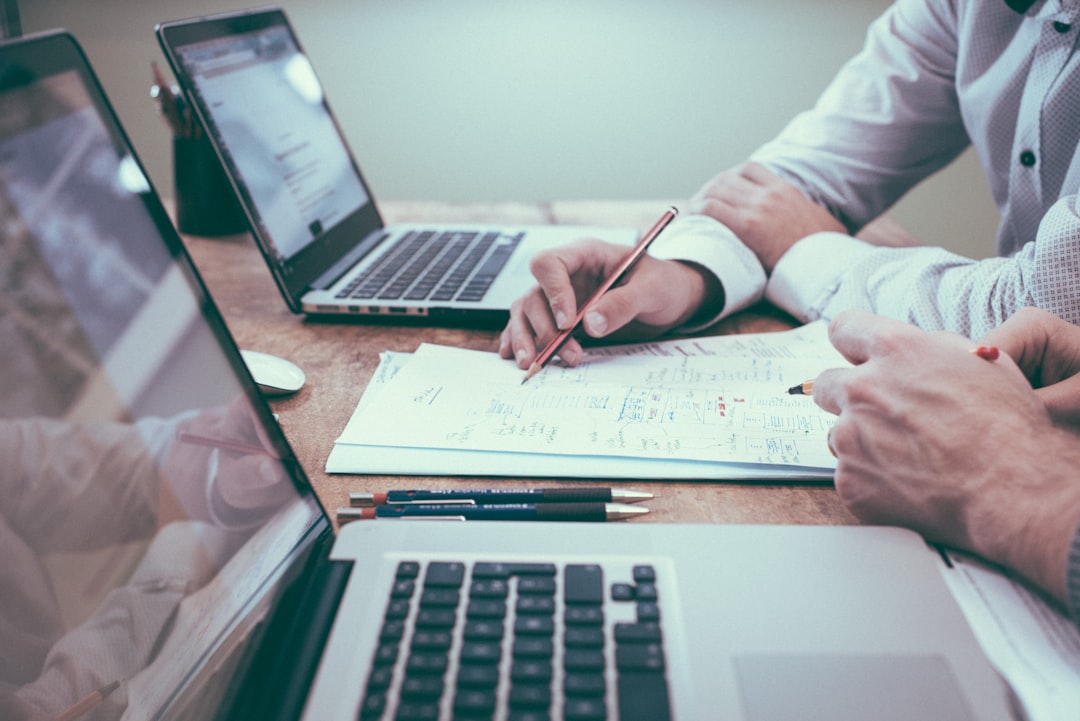Unlock encrypted content
Please enter your SSCE key to initiate on-the-fly decryption.
Decryption key: (Click cancel if you don't have the key)
Copied link to clipboard.
This feature is unavailable for free accounts. Upgrade now and enjoy all Premium benefits.
Go Premium!
This feature is unavailable for free accounts. Upgrade now and enjoy all Premium benefits.
Go Premium!
Please open this page in browser ( Google Chrome or Safari ) to use this feature.
Open In Browser
Data Accessibility on the Go: Exploring Technological Advancements in Cognitive Computing Storage and Quantum Internet
Random related video for this blog.
Copied share link to clipboard.
Whether it's for personal or professional use, the ability to retrieve and share information quickly and efficiently is a necessity. With the rapid advancements in technology, cognitive computing storage and quantum internet have emerged as game-changers in the field of data accessibility. In this article, we will delve into the intricacies of these cutting-edge technologies and explore how they are revolutionizing the way we store, transfer, and access data.
Cognitive Computing Storage: Empowering Intelligent Data Management
Cognitive computing storage refers to the use of artificial intelligence (AI) and machine learning algorithms to enhance data storage and retrieval processes. By leveraging the power of AI, cognitive computing storage systems can analyze vast amounts of data and make intelligent decisions based on patterns and insights derived from that data. This enables organizations to optimize their data management strategies and improve overall efficiency. One of the key advantages of cognitive computing storage is its ability to automate complex data management tasks. For example, by analyzing audio files, a cognitive storage system can automatically categorize and tag them based on their content. This not only saves time but also enables users to search for specific audio files based on keywords, making the retrieval process much faster and more accurate. Another significant aspect of cognitive computing storage is its impact on file access control. With traditional storage systems, access control is often a manual and time-consuming process. However, with cognitive computing storage, access control can be automated based on predefined rules and user permissions. This ensures that only authorized individuals can access sensitive data, minimizing the risk of data breaches and unauthorized access.Quantum Internet: Unleashing the Power of Quantum Computing
While cognitive computing storage enhances data management, quantum internet takes data accessibility to a whole new level. Quantum internet refers to a network infrastructurethat utilizes the principles of quantum mechanics to transmit and process information securely and at lightning-fast speeds. Unlike traditional internet connections, which rely on binary digits (bits), quantum internet uses quantum bits (qubits) to represent and transmit data. One of the most exciting applications of quantum internet is in the field of quantum computing. Quantum computers have the potential to solve complex problems exponentially faster than classical computers. With quantum internet, researchers and scientists can share quantum computing resources, collaborate on projects, and access powerful computing capabilities remotely. This opens up a plethora of opportunities in areas such as drug discovery, optimization problems, and cryptography. Additionally, quantum internet offers enhanced data security through quantum encryption. Traditional encryption methods can be vulnerable to attacks from powerful computers that can break complex encryption algorithms. However, quantum encryption utilizes the principles of quantum mechanics to ensure that data transmitted over the network remains secure. This is achieved through the use of quantum key distribution, which enables the secure exchange of encryption keys between parties.
Lidar Technology and Neuralink: Expanding Data Accessibility Frontiers
In addition to cognitive computing storage and quantum internet, other technological advancements are also contributing to the expansion of data accessibility. Lidar technology, for example, is revolutionizing the way we perceive and interact with our surroundings. By using laser beams to measure distances and create detailed 3D maps, Lidar enables applications such as autonomous vehicles, augmented reality, and environmental monitoring. These applications generate vast amounts of data, which can be stored and accessed using cognitive computing storage systems. Another groundbreaking development is Neuralink, a brain-computer interface company founded by Elon Musk. Neuralink aims to enhance human cognition by connecting our brains directly to computers. This futuristic technology has the potential to revolutionize data accessibility by enabling direct and seamless interaction between our brains and digital systems. Imagine being able to access information, control devices, and communicate without the need for physical interfaces. Neuralink holds immense promise for individuals with disabilities, researchers, and anyone seeking to push the boundaries of human potential.Conclusion
As we continue to witness technological advancements at an unprecedented pace, the field of data accessibility is undergoing a profound transformation. Cognitive computing storage, quantum internet, Lidar technology, and Neuralink are just a few examples of the cutting-edge technologies that are revolutionizing the way we store, transfer, and access data. These advancements not only enhance efficiency and convenience but also pave the way for groundbreaking innovations and discoveries. With data becoming the lifeblood of modern society, embracing these technologies is essential for staying ahead in the digital age.Frequently Asked Questions (FAQs)
Question: What is cognitive computing storage? Answer:
Cognitive computing storage refers to the use of artificial intelligence and machine learning algorithms to enhance data storage and retrieval processes. It enables organizations to optimize their data management strategies and improve overall efficiency.
Question: How does quantum internet work? Answer:
Quantum internet utilizes the principles of quantum mechanics to transmit and process information securely and at high speeds. Instead of using binary digits (bits), it uses quantum bits (qubits) to represent and transmit data.
Question: What is Lidar technology used for? Answer:
Lidar technology is used to create detailed 3D maps by using laser beams to measure distances. It has applications in areas such as autonomous vehicles, augmented reality, and environmental monitoring.
Question: What is Neuralink? Answer:
Neuralink is a brain-computer interface company founded by Elon Musk. It aims to enhance human cognition by connecting our brains directly to computers, enabling seamless interaction between our brains and digital systems. For more information on cognitive computing storage and secure data transfer, visit FileLu.
By Amelia Isabella
Email: [email protected]
Related
The Importance of Cross-Device File Synchronization for Creative Professionals.
May 30, 2023
Read More
Efficient File Transfer Protocols: Making Real-Time Data Synchronization and File...
May 30, 2023
Read More
Popular
Latest
The Future of Digital Transformation: Exploring Smart Homes, Efficient File...
November 30, 2025
Read More
Exploring the Benefits of Cloud Storage and Innovative Technologies in...
November 26, 2025
Read More
The Future of Technology: Exploring Biohacking, Space Tourism, and Digital...
November 23, 2025
Read More
The Future of File Sharing: Streamlined Workflows for Photographers and...
November 19, 2025
Read More
Exploring the Intersection of Technology: From Cybersecurity to Augmented Reality...
November 16, 2025
Read More
The Future of File Management: Embracing Edge Computing and Efficient...
November 12, 2025
Read More
The Future of File Sharing: Exploring User-Friendly Solutions and Data...
November 5, 2025
Read More
The Future of Cloud Storage: How FileLu Empowers Creative Professionals...
November 2, 2025
Read More
The Future of Autonomous Technologies: Innovations in Robotics, File Sharing,...
October 29, 2025
Read More
Emerging Technologies Revolutionizing File Management: From Li-Fi to Robust Collaboration...
October 26, 2025
Read More
Emerging Technologies: Exploring the Impact of File Access Auditing, Genetic...
October 19, 2025
Read More
The Future of Data Storage: Exploring Advanced Encryption, Mobile Integration,...
October 5, 2025
Read More
Exploring the Future of Data Management: Security, Efficiency, and Cognitive...
September 28, 2025
Read More
Revolutionizing Data Management: Innovations in Storage, Security, and Sustainable Technology.
September 24, 2025
Read More
























